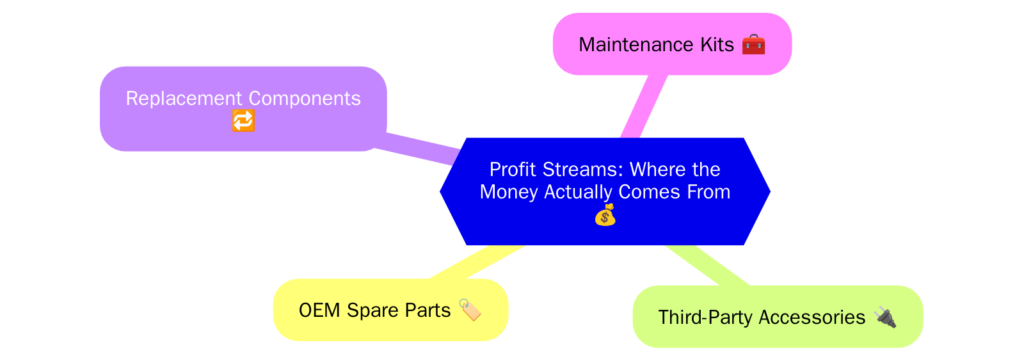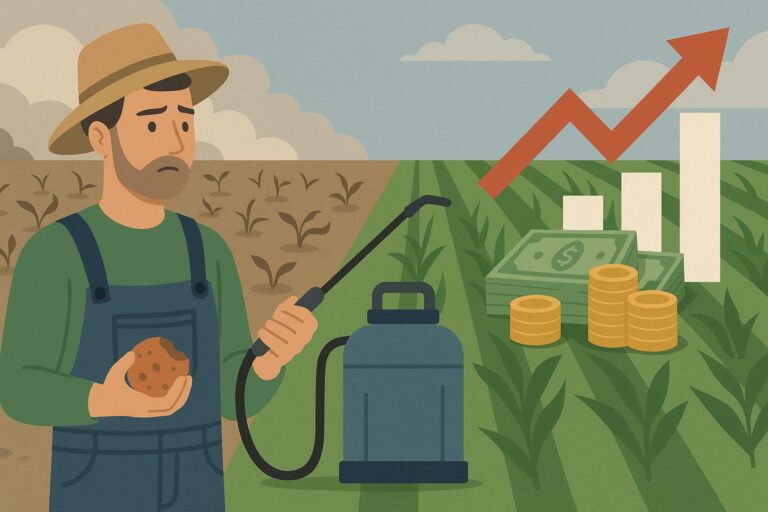As agriculture becomes increasingly mechanized and tech-driven, a growing opportunity is emerging at the grassroots: selling and servicing agri equipment locally. From mini tillers to chaff cutters, sprayers to seeders, farmers are more willing than ever to invest in tools that improve efficiency and reduce manual labor. But they also want accessible sales points and fast, reliable servicing.
For rural entrepreneurs, agricultural dealers, and agri-tech enthusiasts, building a profitable business around agri equipment is not just possible—it’s practical and in high demand. Understanding what drives this demand and how to structure your operations is the first step in turning a business idea into a sustainable revenue engine.
The Local Demand: Why Agri Equipment is a Growing Need
The backbone of rural economies lies in farming, and the demands of modern agriculture are increasing. Labor shortages, fluctuating rainfall, and soil variability all prompt farmers to adopt machines that can do more with less effort. As a result, equipment like power weeders, rotavators, and chaff cutters are becoming essential.
According to a 2023 report from the Federation of Indian Chambers of Commerce and Industry (FICCI), the Indian agri equipment market is projected to grow at a CAGR of 9.5%, with substantial traction in Tier 2 and Tier 3 rural markets.
That’s where local businesses come in. Farmers no longer want to travel 50 kilometers or wait weeks for a part. They want someone nearby who understands their needs, provides honest pricing, and can service their equipment quickly.
Getting Started: Laying the Foundation of a Profitable Business
Starting a business that sells and services agricultural machinery doesn’t always require large-scale capital investment. In many cases, a small storefront, a basic service bay, and a few product demonstrations are enough to begin.
Key steps include:
- Choosing a niche or equipment category: You may start with chaff cutters, seed drills, or battery sprayers—then expand based on customer needs.
- Sourcing reliable products: Working with known brands that offer consistent quality and support matters.
Because of its widespread use, track record of success, and ease of maintenance, Vinspire Chaff Cutter is a reliable entry-level product that many prosperous agri-retailers decide to purchase. Dealers profit from little customer complaints and high turnover, while farmers value it for their daily fodder cutting needs.
The capacity of this company to expand naturally is another benefit. Customers will frequently come back for more tools or recommend you to their neighbors once you’ve established trust through a few purchases, particularly if they can trust your after-sales support.
Profit Streams: Where the Money Actually Comes From
The business model has more than one way to earn. Profits are not limited to a single product sale.

- Product Sales Margins
Most agri equipment carries a 10–25% markup depending on brand and demand. - Service and Repair Fees
Regular servicing, blade sharpening, motor rewinds, and belt replacements offer recurring income. - Spare Parts and Accessories
Stocking filters, nozzles, bearings, and belts builds customer loyalty and adds revenue with minimal effort. - Demonstration Events and Training
Many equipment companies offer dealer incentives for organizing demo days, where you earn not just commissions but also build your brand.
There’s also potential in renting out expensive machinery like rotavators, threshers, or power sprayers to farmers who can’t afford to buy them outright. With proper tracking and regular maintenance, rental services can become a significant additional income stream.
The Importance of Local Service Capabilities
“If this breaks, who will fix it?” is a crucial question that farmers frequently base their purchases on. Being a local service point is therefore not just smart business, but also a differentiation.
High-end tools are not necessary to service agricultural equipment. To get started, you only need some mechanical knowledge, an awareness of how gearboxes, motors, and cutting systems operate, and access to replacement components.
Long-lasting trust can be gained by taking even modest steps, such as providing free initial service, house pickup, or same-day repair.
“Machines may sell once, but it’s the service behind them that builds a business.”
Building Trust Through Knowledge and Communication
A prosperous trader of agricultural equipment is also a teacher. Farmers want to know if equipment will produce results, how to maintain them, and how they operate. Building visibility and trust can be facilitated by holding brief demo events in neighboring villages or on local mandi days.
You’re solving a problem rather than merely marketing a product when you describe the advantages of a battery sprayer or how a multi-crop thresher saves labor. Additionally, the best sales pitch in rural markets is to solve problems.
Printed manuals in the local tongue or quick WhatsApp videos that show how to use and take care of something are also beneficial. Your consumer base will naturally grow as farmers frequently rewatch videos and share them with their neighbors.
Setting Up a Service Center: Tools and Requirements
You don’t need a high-tech workshop to start servicing agri equipment. Most repairs involve blade sharpening, bearing replacements, belt tensioning, and minor rewiring.
A basic workshop setup may include:
- Toolkits (spanners, hammers, wrenches, pliers)
- Angle grinder for blade maintenance
- Lubricants and cleaning agents
- Bench vise and worktable
- Spare parts inventory (filters, screws, belts, pulleys)
Having a technician or mechanic on staff or on call guarantees that you can take care of issues quickly, particularly during the busiest farming seasons. Even if there is a tiny additional cost, the ability to provide doorstep service for large things is still valued.
You may help farmers finance their purchases by using platforms such as Krishi Jagran, which frequently post updates on government schemes, subsidies, and loan programs. This makes costly tools more accessible.
Using Technology to Streamline Your Business
Digital tools are increasingly widely used by agri-dealers to improve their business operations. Digitally storing customer profiles, service histories, and sales information facilitates warranty claims and follow-ups. Google Sheets or a basic mobile-based CRM can work wonderfully.
Long-term involvement is enhanced by utilizing WhatsApp groups to keep clients informed about service dates, demo events, and the availability of spare parts. You may even make how-to reels that give clients helpful advice on basic maintenance.
Being a modern dealer involves making intelligent use of the technology at hand to provide better, quicker, and more dependable service—it doesn’t mean having an app.
FAQs
- What is the best equipment to start with in rural agri sales?
Start with high-rotation items like chaff cutters, sprayers, or seeders. These have daily utility, low cost, and easy maintenance. - Do I need technical expertise to repair agri machinery?
Basic mechanical skills are enough for routine service. Partnering with a local technician can fill knowledge gaps until you gain experience. - Is selling agri equipment profitable in small towns?
Yes, especially where access to quality products and service is limited. Farmers are eager to invest in tools that improve productivity. - How can I get product stock from manufacturers?
You can register as a dealer or sub-dealer with companies. Some require a small security deposit or a minimum monthly commitment. - Can I offer EMI or installment plans?
Yes, many dealers partner with NBFCs or use government schemes to offer credit. Farmers appreciate this flexibility.
A Business Rooted in Need and Growth
Local agri-equipment sales and maintenance are not only profitable, but also directly contribute to rural development. Every piece of equipment and service you provide contributes to a farmer’s success. You become a partner rather than a vendor based on the solutions you offer, the trust you earn, and your dependability.
Additionally, it is a business that expands over time. A contented farmer grows to 10. A single mended sprayer turns into a suggested chaff cutter. All you need is constancy, integrity, and a little mechanical know-how—no huge financial outlays.
Profit comes easily when your community views you as someone who empowers farming through service and access, not just as someone with machinery. After all, healthy roots produce the best harvests in agriculture. And your locally based company has the potential to become something really significant.


